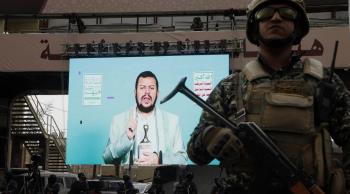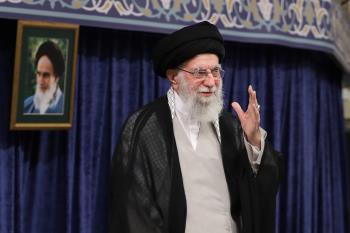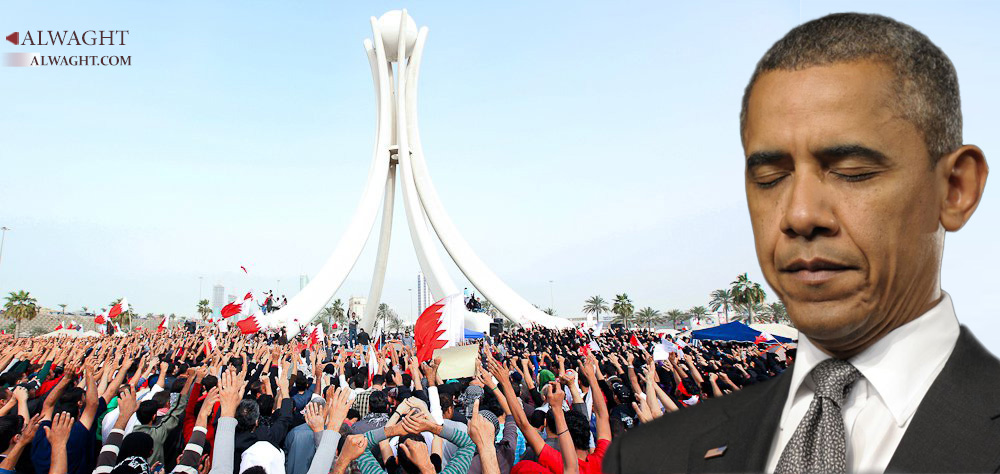Alwaght- In Bahrain, the minority rules the majority and still claims of democracy are still made. In Bahrain, one family has a say over everything while the people’s voices are muffled. In Bahrain, human rights are violated but no one is held accountable.
Even with the US, UK, and UN criticizing the al-Khalifa monarchy, the regime continues to suppress the opposition relentlessly. Why? Because these forces are not doing anything to punish Manama over its violations. They merely issue a few words of warning to appear as if they are standing by the oppressed without taking any action against their ally in the Persian Gulf.
Western calls to put an end to the crackdown on Bahraini dissents have yielded no change for the opposition groups that have been forced to mount the scaffold for speaking up against injustice.
Day to day demonstrations are continuing and so are security forces’ attacks against protesters who usually take to the streets chanting slogans and carrying banners and pictures of political detainees.
Sheikh Ali Salman Head of al-Wefaq, the main opposition group, remains in custody after he was convicted of inciting hatred, promoting disobedience and "insulting" public institutions. The fact is, however, that authorities in Manama slam these crimes on anyone who calls for freedom and democracy in the kingdom. This is Salman’s only crime.
Human rights activists such as Nabeel Rajab and Zeinab al-Khawaja have also been punished with imprisonment.
Last month, Sheikh Issa Qassim, Bahrain’s highest Shiite religious authority was stripped of his citizenship. A week earlier the so-called Justice Ministry suspended al-Wefaq and dissolved two main Islamic associations.
In addition, there have been reports that claim Qassim’s village, which is known for its political activism, has been cut off from internet and mobile coverage.
These events and much more have taken place in the past two months. Since the revolution began in 2011, the lists of human rights violations have been piling up. Deadly shootings, violence against protesters, raiding houses, demolishing mosques, arbitrary arrests, and revoking citizenships are examples of how the Bahraini regime has been clamping down on the opposition.
A few condemnations and statements have been issued by Western states, particularly the US and the UK but not more. There have been no threats to cut off relations or calls to impose sanctions on the Persian-Gulf Island. There have been no serious warnings and no indications that the Americans and Brits are ready to defend human rights at the cost of their interests. Military and economic ties with Bahrain remain strong. The UK and the US have been accused of enforcing a policy of double standards due to their arms sales to Bahrain. On the one hand, they call on the regime to stop its crackdown while on the other they arm it with the weapons it uses against its citizens.
As a matter of fact, British arms sales to Bahrain increased significantly between 2011 and 2015. In the years following the uprising, the UK and Bahrain signed deals worth £45m. These deals included machine guns, assault rifles and anti-armor ammunition, according to the Campaign against Arms Trade (CAAT) organization.
In July 2015, Human Rights Watch deplored the Obama administration’s decision to lift restrictions on arms sales to Bahrain. The group quoted Sara Margon, Washington director as saying: “Whatever the real reasons for reviving these arms sales, it’s clear that the decision has not been taken in the interest of the people of Bahrain.”
“The prospect of reform and human rights improvements are now further away than ever,” Margon added.
What interests these powers in Bahrain as well is its strategic location in the Persian Gulf and the fact that it provides space for military bases. Bahrain hosts the US fifth fleet and the UK is currently building a military base there. Upsetting Bahraini authorities, their strategic allies, would bring about undesired repercussions.
It is clear why the US and the UK, and the world bodies that they have influence on, would resort to euphemized statements concerning the human rights situation in Bahrain and consequently words that are only meant to say what they do not mean. Ultimately, not only do they fail to stand by the people of Bahrain in the face of their oppressors but they are also more concerned with protecting the country from a possible regime change that will threaten their interests in the region at the expense of the majority of Bahrainis.



























